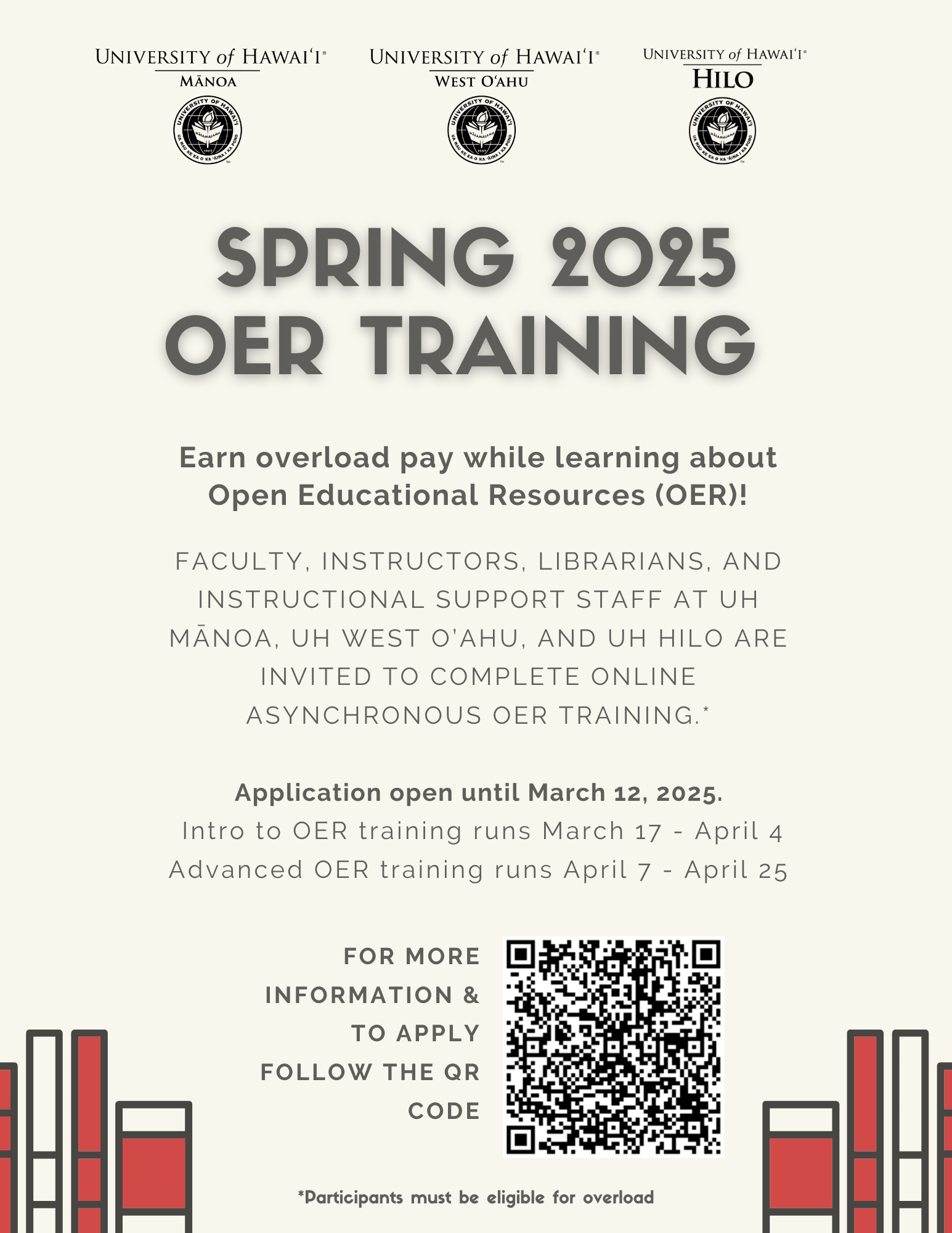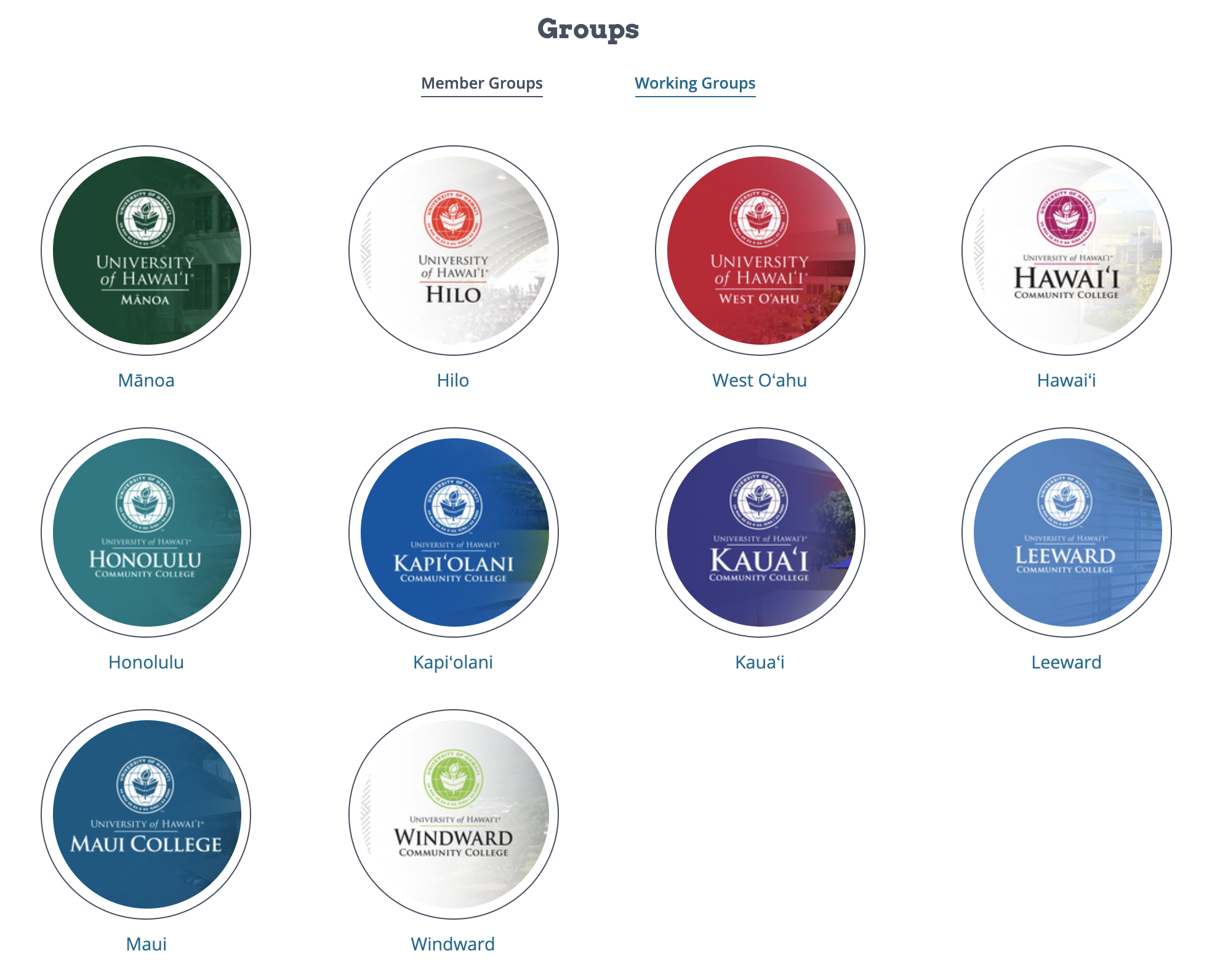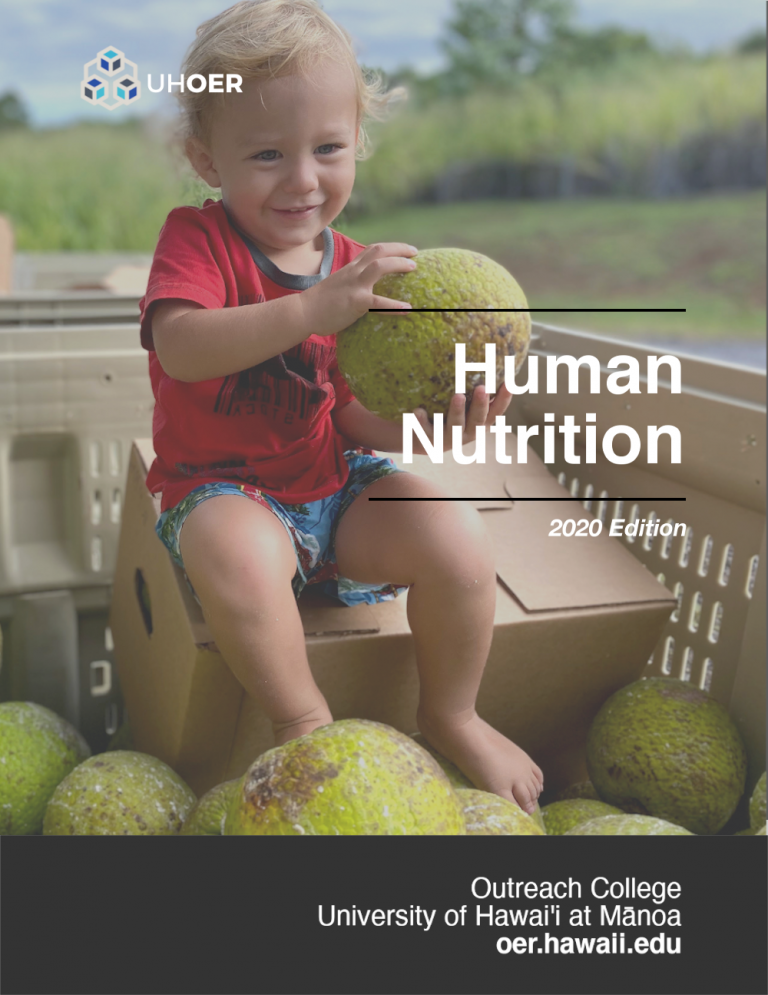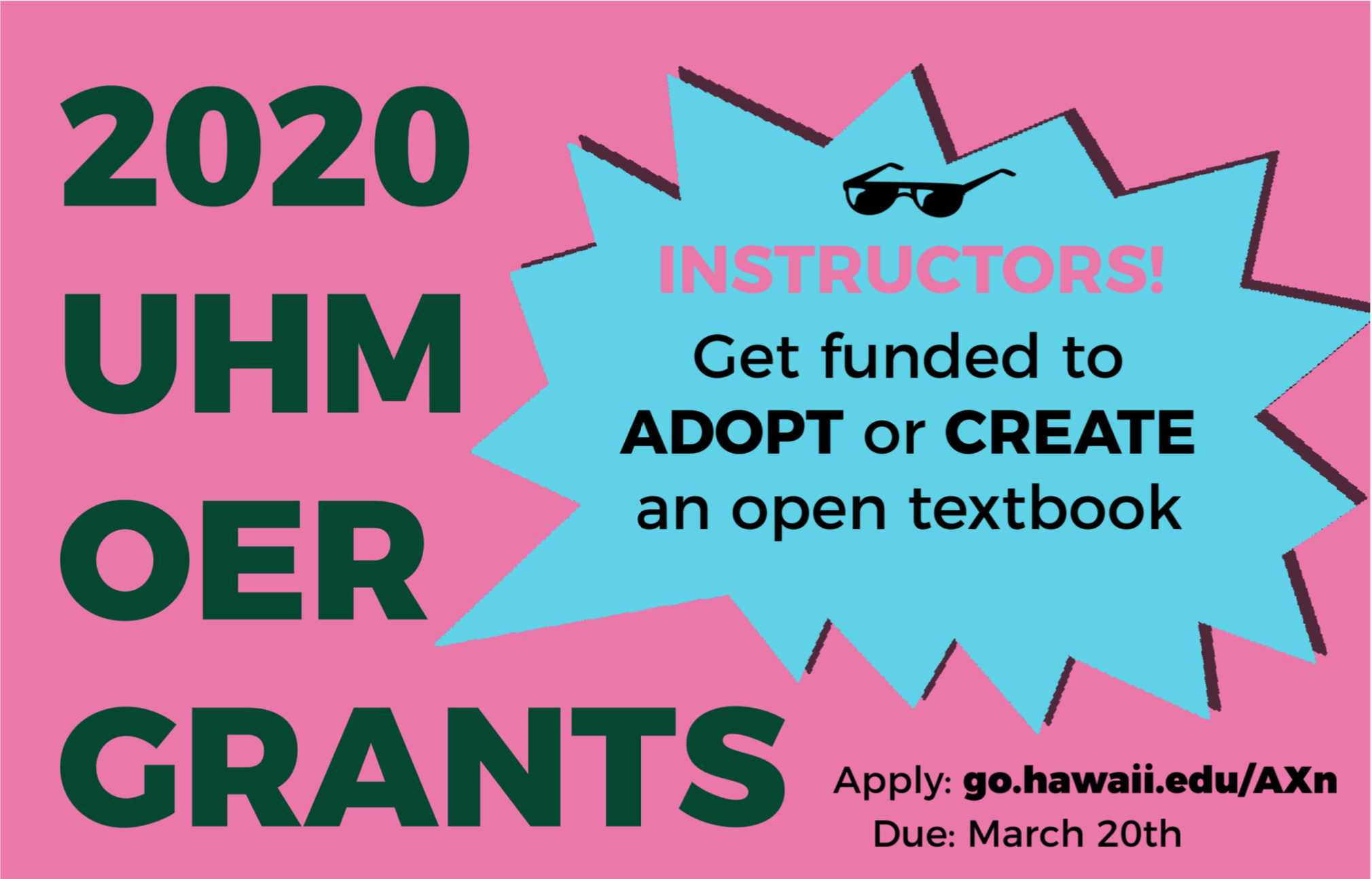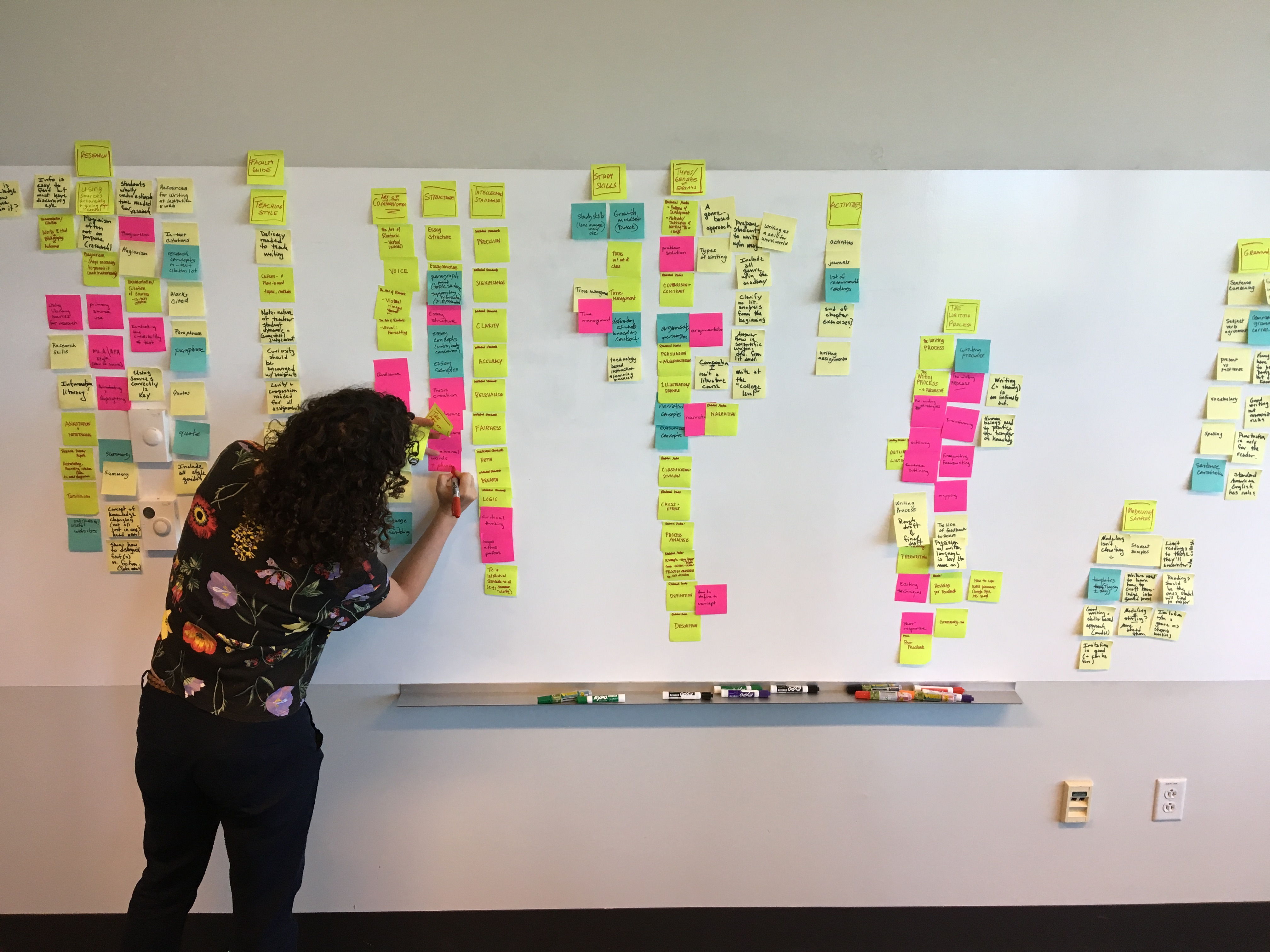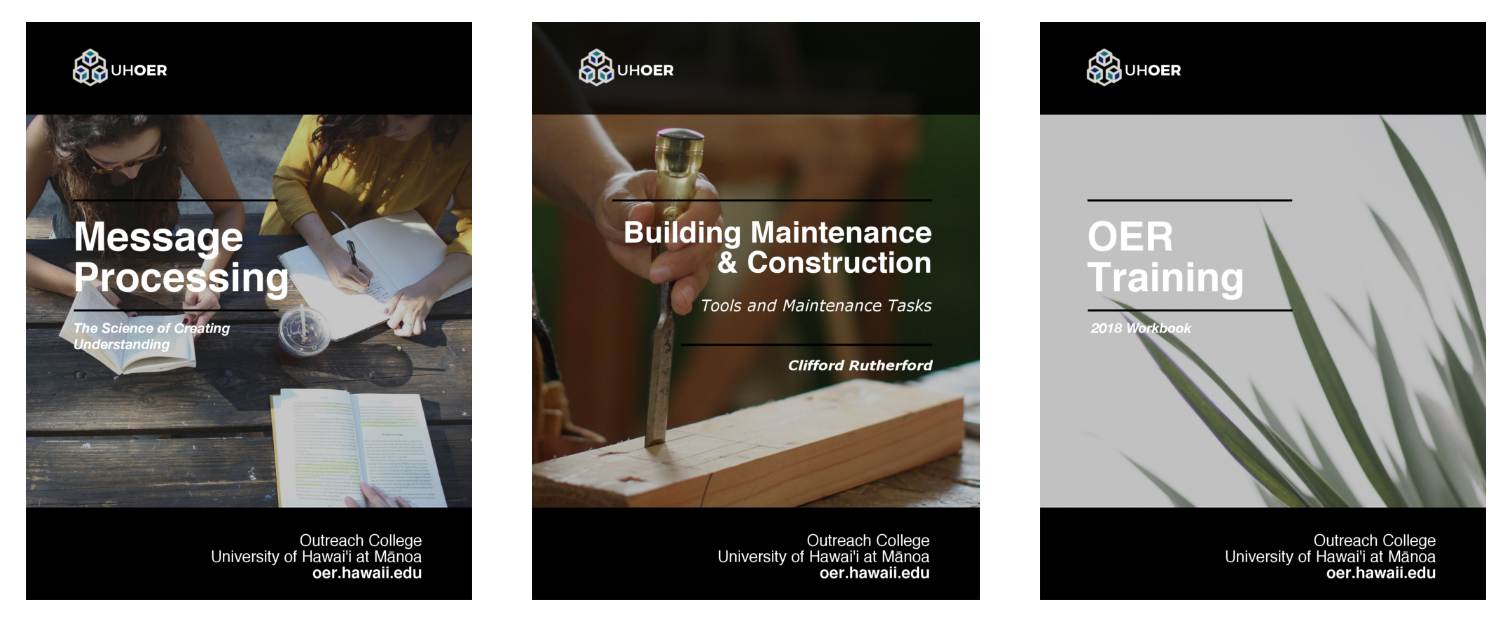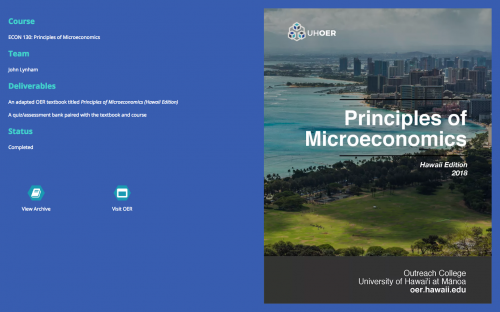As we settle into the summer season here in Hawaii, it’s time to look back at the first six months of the year and reflect on the policy happenings. As I’ll take a few words to explain, Hawaii State Senate Bill SB 2328 appeared on our radar in January, the first high-level policy in Hawaii to focus on the development and adoption of Open Educational Resources. To be sure, the original mandates of the well-intended bill were impossible to effect as they infringed on the academic freedom of faculty. But even as feedback through testimony and hearings improved the bill — by establishing a task force and grant program — and seemed likely to pass, last minute testimony and revised wording marred the bill with inaccurate statements regarding copyright and OER, and the publishing industry came onto the scene. Opinions aside about whether or not a bill for OER is actually needed for it to flourish in Hawaii, the process of following a bill from first introduction to its quiet death offered an interesting look into the legislative process for policy affecting the University of Hawaii (UH).
Before my commentary, you can read the history of the bill on the Hawaii State Senate website. Therein you will find all four versions of the bill as well as testimony submitted by UH, the University of Hawaii Professional Assembly (UHPA), and myself among many other individuals. I’ll note that as the lead of the UH OER project, I was never contacted or consulted by either of the Committees on Higher Education (HE), although text from the UH OER website (oer.hawaii.edu) was copied-and-pasted into the bill itself in its first draft. At the end of this post I’ll touch on what would make a strong, impactful OER bill if the HE committee in either the State Senate or House of Representatives were to consider introducing similar legislation in future sessions. They very much fall in line with what you will find in the fantastic OER State Policy Playbook created by the Scholarly Publishing and Academic Research Coalition (SPARC).
SB 2328 first came to my attention via Twitter when a government relations employee of a national bookstore organization tweeted it out. Clicking down to the Hawaii State Senate website confirmed that a bill for OER had been introduced. In short, the bill stated a need for improved college affordability and then presented the following mandates that by 2021:
- All courses at UH required to use Open Educational Resources
- Paid materials and subscriptions in courses no longer allowed
- In cases where no OER exist for a course, instructors must create new OER
After confirming that no one within UH was aware of the bill before its introduction, internal feedback was sought and testimony was submitted to the Senate HE Committee by the UH Office of the Vice President of Academic Policy and Planning. From the beginning it was clear that any mandate to use OER would violate academic freedom, and that existing OER (in our repository) simply could not meet the needs of instructors in all courses. The notion of instructors being required to work off the sides of their desks to create new OER was impossible. A lot of stick without much carrot.
Current and emeritus faculty railed against the bill, and an unfortunate association was made between OER and limiting academic freedom. This association echoed in the hallways of UH campuses and across social media networks for months, long after the second draft removed the mandates entirely. The issue on its own was also highlighted by Inside Higher Education and e-Literate.
In a positive turn, the second draft of the bill:
- Removed mandates to use or create OER
- Established a UH OER Task Force charged with reporting on the suitability of OER for all general education and high enrollment courses by 2019
- Established a $50k OER pilot grant program
The task force would be made up of all vice chancellors for academic affairs in the UH system, representatives from UH Faculty Senate, the OER project, UHPA, and the board of regents among others in the 16-person group. All members of the task force were directly associated with UH at this point. As for the grant program, it closely mirrored the UHM OER grant program I manage in terms of funding amount per project, but did not reflect the technical support and OER production guidance we also offer to our grantees.
The third draft of the bill carried no substantive changes.
The final hour is where things got interesting in terms of what, when, and how changes to the bill were made. Another hearing of the bill had been postponed, and what emerged from the rescheduled meeting was a fourth draft of the bill with critical changes that removed the term Open Educational Resources entirely, killed the OER Pilot grant program, and added a publishing industry representative to the task force which now would now focus on “No- and Low-Cost Options”.
But how?
Keeping in mind that supportive testimony we see was actually supporting a very different bill (the third draft), a review of the final batch of testimonies did not reveal anything out of the ordinary. But alongside testimonies and drafts of legislation, committee reports can provide more information related to changes in a bill. The committee report showed a gross misunderstanding of copyright and OER, and used it to justify the removal of OER from the entire bill in both name and substance.
The report states:
Your Committee finds that the University of Hawaii is already providing options to reduce the cost of educational materials on an ad hoc basis. Your Committee has chosen not to have the Task Force focus on requiring open educational resources because open education resources are proprietary, do not fully reflect the ad hoc efforts that are already being undertaken by the University of Hawaii, and are not available for certain professional and graduate programs.
Your Committee further notes that, as requested in testimony, a representative of the publishing industry was included as a member of the task force to incentivize publishers to lower costs for textbooks.
Let’s pause right there for a moment.
Open Educational Resources are precisely the opposite of proprietary. OER are defined in part by having an open license, one that permits reuse and revision — the legal linchpin of why OER are so impactful. In the United States, copyright is automatic and requires no registration to protect creative work, which can stifle collaboration. To make content legally open, licenses like Creative Commons (CC) are used to publicly and clearly license work for reuse, telling others that your work can be shared — the first three drafts of the bill state this clearly. I work directly with faculty that both reuse and publish new OER with CC licenses in their practice and are able to collaborate across UH campuses without the need for lawyers to draft new licenses constantly. On the other hand, educational resources without an open license are actually considered “proprietary”.
Traditional textbooks from the big education publishers such as Pearson and Cengage are proprietary. The publishing industry has seen declining profits in the print sector and is now shifting towards digital textbook rentals, which of course carry a limited license. Each student pays a fee that is typically lower than a traditional textbook for limited (often 16 weeks of) access, then the book disappears. Nothing to keep, nothing to sell back, and the notes students made in the margins are usually kept by the publisher as well. So consider that once a course has transitioned to an OER textbook, it can be updated and shared with other instructors, and it remains open. Free for good. All students have perpetual access to the book: they keep it when it’s OER. When we calculate cost savings for a course moving to OER, those savings are ongoing and saving students money year after year as the free book lives on and is updated by instructors as part of their practice. Discounts and low-cost rentals from the publishers simply pale in comparison to what OER do for students and faculty.
If a defining term such as Open Educational Resources can be removed from a bill on the basis of being proprietary (which they actually are not), then content from the big publishers could be disqualified from consideration based on the fact that it is proprietary, no? This would seem reasonable.
Finally, in terms of the last minute changes to the bill, we saw the addition of a “Publishing Industry Representative” to the task force. Stepping back for a moment and noting that the cost of textbooks rose 82% from 2003 to 2013, why would we invite those who are the cause of the problem to the table? Let us not assume that those who created the problem know it best and are better positioned to solve it. Our work with OER at UH simply does not involve the publishers because we are sharing and adapting content that carries no profit margins for them, and they have yet to offer worthwhile products or services that help us do better what we are already doing.
If the bill were to re-center itself on OER, there would be no need to “incentivize publishers to lower costs for textbooks”. Having attended several hearings and pored over the testimony, there was absolutely no participation from the publishing industry until the final moment, if any public participation was made at all. A publishing industry representative would add nothing meaningful to a task force focusing on OER, full stop.
Many seemed to hang on the unfortunate mandates written into the first draft of the bill and lost interest once they were removed. It appears that at the end the bill failed to be scheduled for a hearing and so fell out of the legislative session. Gone for now. But questions remain about how the bill changed so dramatically at the end and how the publishing industry was involved.
Changing gears slightly, a bill positively supporting Open Educational Resources in Hawaii might do any of the following:
- Establish an OER grant program*
- Require OER to be marked in course schedules
- Create a task force or council*
- Issue a savings challenge
*These were originally part of SB 2328.
SPARC’s playbook has detailed information on each of the above including sample policies from several states that have recognized the potential of OER and are using legislative means to support its growth. Sample text from those policies can provide a starting point for an OER bill for Hawaii. The legislatures of other states including New York and Georgia have made significant investments in OER resulting in tens of millions of dollars in student savings and hundreds of thousands of students affected. Half a dozen other states have similar programs but with fewer resources committed, and more are on their way.
SB 2328 was going to be the beginnings of policy support for OER in Hawaii, and it was derailed before dying. The implications of involving for-profit publishers in the policy-making process for higher education curriculum are uncertain. What we do know is that we are already making progress with adoptions system-wide and publishing our first OER textbooks developed locally. And that well-informed legislation that secures perpetual student savings through specific, positive support for OER would be welcomed in the future.
Featured image for this post by Jim Bowen on Flickr / CC BY.


